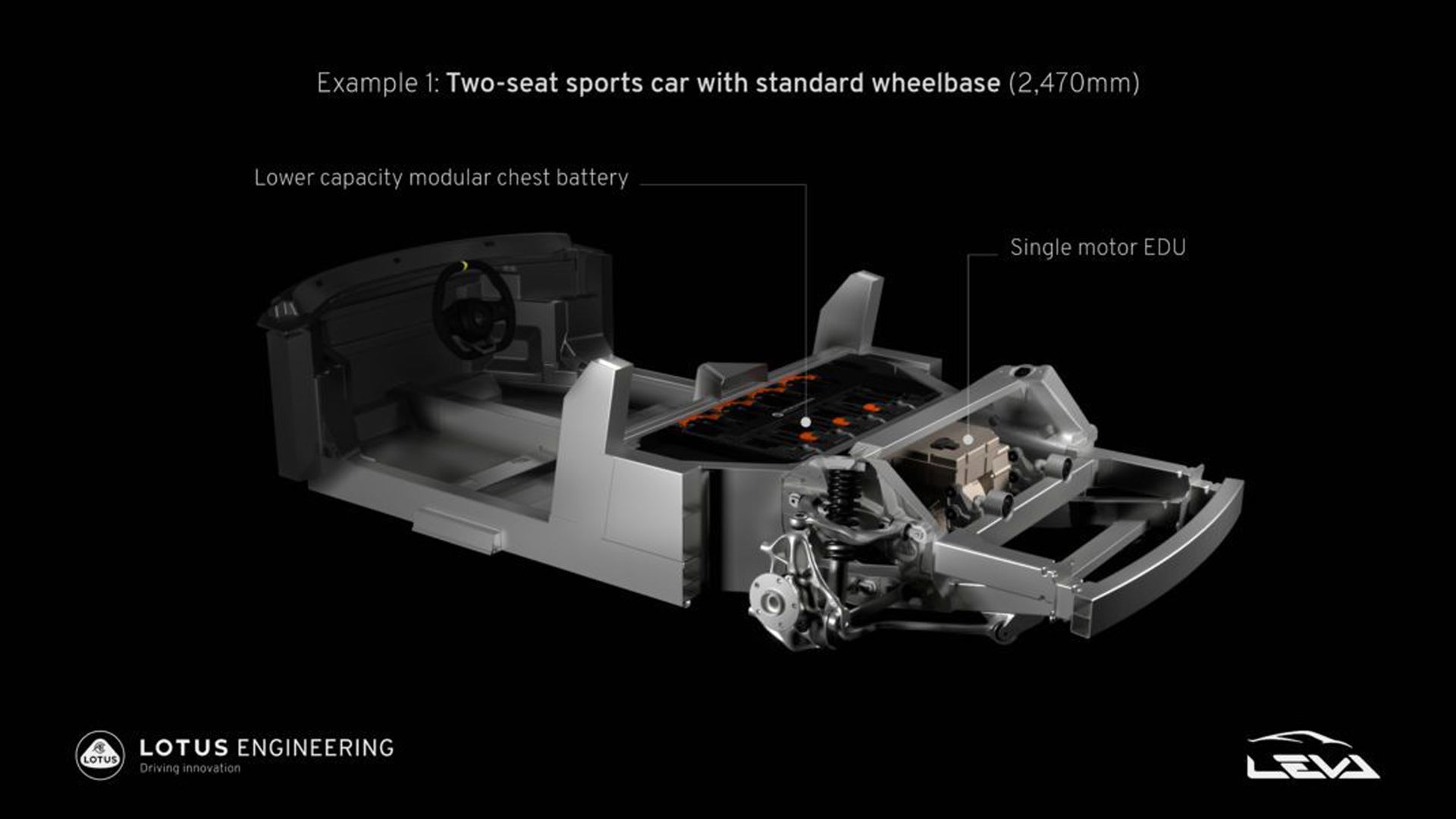- Latest: Welcome to Auto Futures - Mobility News, Features, Exclusives and More...
- Latest: Subaru Europe Unveils the Brand's First All-Electric Compact SUV
- Latest: Lucid, Nuro & Uber Partner on Next-Generation Autonomous Robotaxi Service
- Latest: GM & Redwood Materials to Repurpose EV Batteries for Energy Storage
- Latest: Stellantis Discontinues Hydrogen Fuel Cell Technology Development Program
- Latest: Paving the way for an Electrified Future - L-Charge CEO
Lotus Reveals New Lightweight Chassis For Next Generation of Electric Sports Cars

Lotus has given a world premiere to the new lightweight chassis technology that will underpin its new family of electric performance cars. The new structure has been developed through Project LEVA (Lightweight Electric Vehicle Architecture), announced in October, 2020, by Lotus.
Project LEVA is a research programme that’s accelerating the development of all-new lightweight structures for next-generation battery electric vehicles.
The rear structure is 37% lighter than it is on the Lotus Emira V6. This means Lotus now has the ‘blueprint’ for the next generation of electric sports cars, for future Lotus products and for the Lotus Engineering consultancy to commercialise.
The next stage of the project is for Lotus to continue development of the all-electric vehicles which will be built on this innovative new architecture.
The new lightweight chassis technology is on show at the Low Carbon Vehicle event staged by Cenex, the UK’s Low Carbon and Fuel Cells Centre of Excellence, at Millbrook Proving Ground, Bedfordshire, UK, on 22/23 September.
Richard Moore, Executive Director, Engineering, Lotus Cars, says: “Project LEVA and the electric sports car architecture are perfect illustrations of the innovation which continues to be at the heart of everything Lotus does. Today’s EVs are heavy in comparison to their ICE equivalents, so the ARMD funding has helped Lotus to innovate earlier in the product cycle and develop a new vehicle architecture that targets lightweight and performance density from conception. Rather than developing a single vehicle, it means Lotus now has the ‘blueprint’ for the next generation of electric sports cars, for future Lotus products and for the Lotus Engineering consultancy to commercialise.”

In July 2019 Lotus launched the Evija, the world’s first all-electric British hypercar. Customer deliveries will begin during 2021.
